-
 bitcoin
bitcoin $87959.907984 USD
1.34% -
 ethereum
ethereum $2920.497338 USD
3.04% -
 tether
tether $0.999775 USD
0.00% -
 xrp
xrp $2.237324 USD
8.12% -
 bnb
bnb $860.243768 USD
0.90% -
 solana
solana $138.089498 USD
5.43% -
 usd-coin
usd-coin $0.999807 USD
0.01% -
 tron
tron $0.272801 USD
-1.53% -
 dogecoin
dogecoin $0.150904 USD
2.96% -
 cardano
cardano $0.421635 USD
1.97% -
 hyperliquid
hyperliquid $32.152445 USD
2.23% -
 bitcoin-cash
bitcoin-cash $533.301069 USD
-1.94% -
 chainlink
chainlink $12.953417 USD
2.68% -
 unus-sed-leo
unus-sed-leo $9.535951 USD
0.73% -
 zcash
zcash $521.483386 USD
-2.87%
Should I run after the long upper shadow line appears? How to judge true or false?
A long upper shadow in crypto trading signals potential price rejection, indicating bulls lost control to sellers, but should be confirmed with trend, volume, and other indicators before acting.
Jun 19, 2025 at 09:21 am
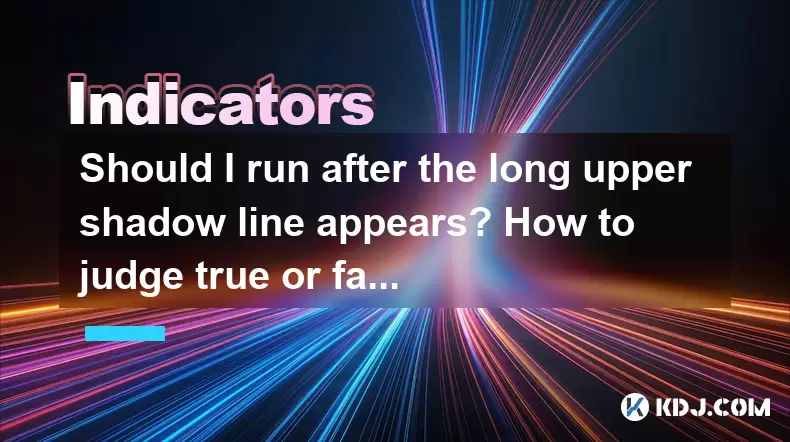
Understanding the Long Upper Shadow Line in Cryptocurrency Trading
In cryptocurrency trading, candlestick patterns play a crucial role in analyzing price movements. One such pattern is the long upper shadow line, which appears when the price rises significantly during a candle's timeframe but then falls back to close near the opening price. This creates a candle with a long wick or shadow on the top, signaling potential rejection of higher prices.
This formation often indicates that buyers attempted to push the price up, but were met with strong selling pressure. However, it’s important not to interpret this signal in isolation. The context within the broader trend and volume dynamics must be considered before making any decision.
Note:A single long upper shadow does not guarantee a reversal—it only suggests caution.
Why Does a Long Upper Shadow Form?
A long upper shadow forms due to market psychology and the interaction between buyers and sellers. During a bullish move, traders may become overly optimistic and start buying aggressively. As the price climbs, some traders take profits, while others initiate short positions, expecting a pullback.
- Highs are rejected: Price reaches a new high but fails to hold it.
- Sellers dominate by the close: The closing price is significantly lower than the intracandle high.
- Volume matters: If the volume is high during this candle, it could indicate strong selling pressure.
The presence of a long upper shadow at resistance levels increases the probability of a bearish reversal. However, if it occurs in a sideways or ranging market, its significance might be weaker.
How to Differentiate Between a Fake and Real Signal
Not all long upper shadows lead to reversals. Some are false signals, especially in volatile crypto markets where whales and bots can manipulate price action. Here's how to assess whether the signal is genuine:
- Check the trend: Is the long upper shadow appearing after a significant uptrend? If yes, the likelihood of a reversal increases.
- Analyze support/resistance levels: If the shadow appears at a known resistance level, it adds more credibility to the bearish signal.
- Observe volume: High volume during the candle confirms that real market participants are involved, not just random price spikes.
- Look for confirmation candles: Wait for the next few candles to close below the long-shadowed candle’s low to confirm the reversal.
If these factors align, you’re likely looking at a real reversal signal rather than a fake one.
Steps to Trade Safely When Facing a Long Upper Shadow
When you spot a long upper shadow, especially in a trending market, here's how to approach your trading strategy cautiously:
- Avoid immediate reaction: Don’t panic sell or short immediately upon seeing the shadow.
- Wait for confirmation: Let the next candle(s) confirm the direction. A bearish engulfing candle or a strong red candle below the shadow’s body adds validity.
- Use technical indicators: Overlay tools like RSI, MACD, or moving averages to validate the reversal.
- Place stop-loss orders wisely: If entering a short trade, place a stop above the high of the shadowed candle to manage risk.
- Monitor order flow: Use depth charts or volume profile tools (if available) to see if large orders are being placed on the sell side.
Remember: patience and confirmation are key when dealing with ambiguous candlestick signals like the long upper shadow.
Common Mistakes Traders Make With Long Upper Shadows
Many novice traders misinterpret the long upper shadow as an automatic sell signal. Here are common pitfalls to avoid:
- Trading based solely on one candle: No single candle should dictate your entire strategy without context.
- Neglecting volume analysis: Ignoring volume can lead to poor decisions, especially in fakeouts created by large players.
- Ignoring market structure: A shadow in a consolidation zone may not carry the same weight as one at a major resistance level.
- Overleveraging on shadow-based trades: Since these signals can be misleading, risking too much capital can result in heavy losses.
To improve accuracy, always combine candlestick patterns with other forms of technical analysis and risk management techniques.
Frequently Asked Questions
Q: Can a long upper shadow appear in a downtrend? What does it mean then?A: Yes, it can appear in a downtrend, often indicating a failed rally attempt by bulls. It may suggest that the downtrend remains intact unless followed by strong bullish confirmation.
Q: Should I ignore long upper shadows entirely if there's no volume spike?A: Not necessarily. While volume adds credibility, even low-volume shadows at key levels can act as psychological barriers. Use them as potential warning signs, not definitive entry points.
Q: How reliable is the long upper shadow compared to other reversal patterns?A: It's moderately reliable but works best when combined with other signals. Patterns like bearish engulfing, shooting star, or evening star offer stronger reversal clues when aligned with a long upper shadow.
Q: Can long upper shadows form on longer timeframes like daily or weekly charts?A: Absolutely. In fact, shadows on higher timeframes tend to carry more weight because they reflect larger market sentiment shifts and are less prone to manipulation.
Disclaimer:info@kdj.com
The information provided is not trading advice. kdj.com does not assume any responsibility for any investments made based on the information provided in this article. Cryptocurrencies are highly volatile and it is highly recommended that you invest with caution after thorough research!
If you believe that the content used on this website infringes your copyright, please contact us immediately (info@kdj.com) and we will delete it promptly.
- Bitcoin's Rocky Road: Inflation Surges, Rate Cut Hopes Fade, and the Digital Gold Debate Heats Up
- 2026-02-01 09:40:02
- Bitcoin Shows Cheaper Data Signals, Analysts Eyeing Gold Rotation
- 2026-02-01 07:40:02
- Bitcoin's Latest Tumble: Is This the Ultimate 'Buy the Dip' Signal for Crypto?
- 2026-02-01 07:35:01
- Big Apple Crypto Blues: Bitcoin and Ethereum Stumble as $500 Billion Vanishes Amid Macroeconomic Whirlwind
- 2026-02-01 07:35:01
- Michael Wrubel Crowns IPO Genie as the Next Big Presale: A New Era for Early-Stage Investments Hits the Blockchain
- 2026-02-01 07:30:02
- XRP, Ripple, Support Level: Navigating the Urban Jungle of Crypto Volatility
- 2026-02-01 06:35:01
Related knowledge
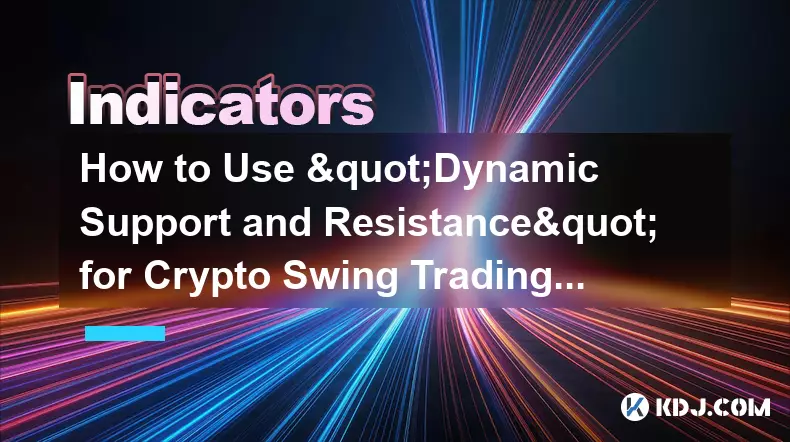
How to Use "Dynamic Support and Resistance" for Crypto Swing Trading? (EMA)
Feb 01,2026 at 12:20am
Understanding Dynamic Support and Resistance in Crypto Markets1. Dynamic support and resistance levels shift over time based on price action and movin...
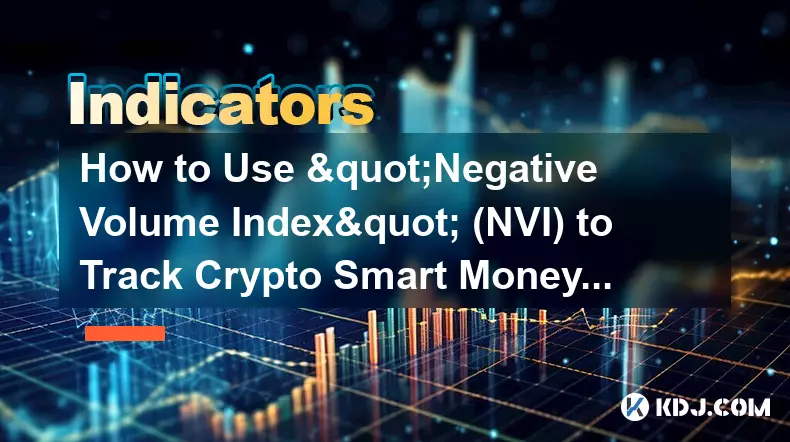
How to Use "Negative Volume Index" (NVI) to Track Crypto Smart Money? (Pro)
Feb 01,2026 at 02:40am
Understanding NVI Mechanics in Crypto Markets1. NVI calculates cumulative price change only on days when trading volume decreases compared to the prio...
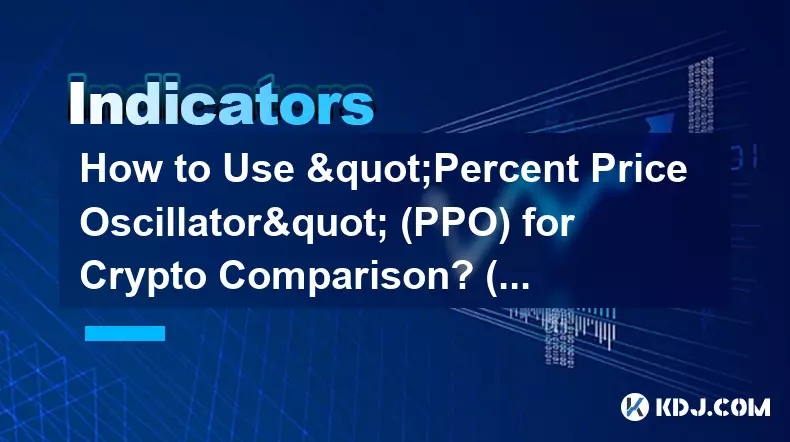
How to Use "Percent Price Oscillator" (PPO) for Crypto Comparison? (Strategy)
Feb 01,2026 at 01:59am
Understanding PPO Mechanics in Volatile Crypto Markets1. The Percent Price Oscillator calculates the difference between two exponential moving average...
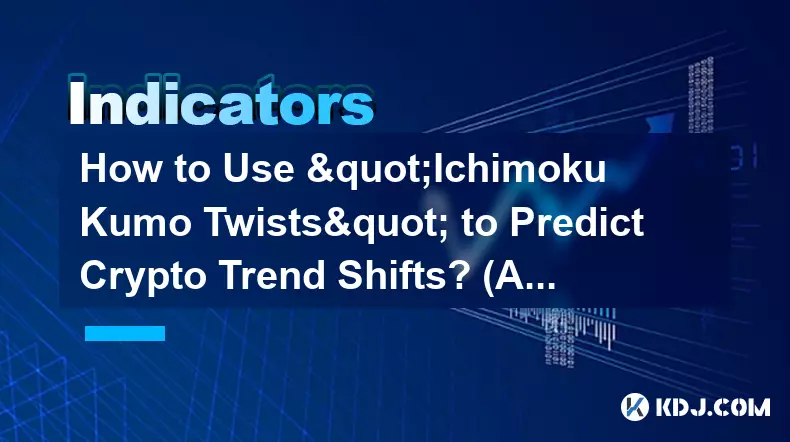
How to Use "Ichimoku Kumo Twists" to Predict Crypto Trend Shifts? (Advanced)
Feb 01,2026 at 10:39am
Understanding the Ichimoku Kumo Structure1. The Kumo, or cloud, is formed by two boundary lines: Senkou Span A and Senkou Span B, plotted 26 periods a...
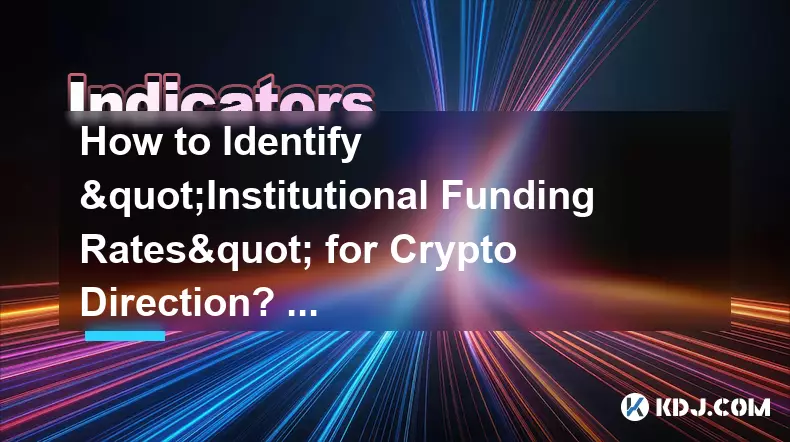
How to Identify "Institutional Funding Rates" for Crypto Direction? (Sentiment)
Feb 01,2026 at 07:20am
Understanding Institutional Funding Rates1. Institutional funding rates reflect the cost of holding perpetual futures positions on major derivatives e...
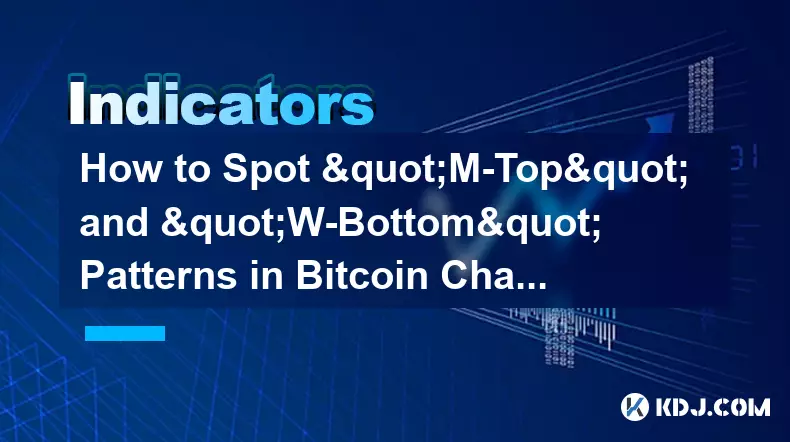
How to Spot "M-Top" and "W-Bottom" Patterns in Bitcoin Charts? (Classic TA)
Feb 01,2026 at 05:59am
Understanding M-Top Formation Mechanics1. An M-Top emerges after a sustained bullish phase where Bitcoin price reaches a local peak, pulls back, ralli...

How to Use "Dynamic Support and Resistance" for Crypto Swing Trading? (EMA)
Feb 01,2026 at 12:20am
Understanding Dynamic Support and Resistance in Crypto Markets1. Dynamic support and resistance levels shift over time based on price action and movin...

How to Use "Negative Volume Index" (NVI) to Track Crypto Smart Money? (Pro)
Feb 01,2026 at 02:40am
Understanding NVI Mechanics in Crypto Markets1. NVI calculates cumulative price change only on days when trading volume decreases compared to the prio...

How to Use "Percent Price Oscillator" (PPO) for Crypto Comparison? (Strategy)
Feb 01,2026 at 01:59am
Understanding PPO Mechanics in Volatile Crypto Markets1. The Percent Price Oscillator calculates the difference between two exponential moving average...

How to Use "Ichimoku Kumo Twists" to Predict Crypto Trend Shifts? (Advanced)
Feb 01,2026 at 10:39am
Understanding the Ichimoku Kumo Structure1. The Kumo, or cloud, is formed by two boundary lines: Senkou Span A and Senkou Span B, plotted 26 periods a...

How to Identify "Institutional Funding Rates" for Crypto Direction? (Sentiment)
Feb 01,2026 at 07:20am
Understanding Institutional Funding Rates1. Institutional funding rates reflect the cost of holding perpetual futures positions on major derivatives e...

How to Spot "M-Top" and "W-Bottom" Patterns in Bitcoin Charts? (Classic TA)
Feb 01,2026 at 05:59am
Understanding M-Top Formation Mechanics1. An M-Top emerges after a sustained bullish phase where Bitcoin price reaches a local peak, pulls back, ralli...
See all articles





















![THIS IS THE HARDEST COIN TO GET [POLY DASH] THIS IS THE HARDEST COIN TO GET [POLY DASH]](/uploads/2026/01/31/cryptocurrencies-news/videos/origin_697e0319ee56d_image_500_375.webp)




















































